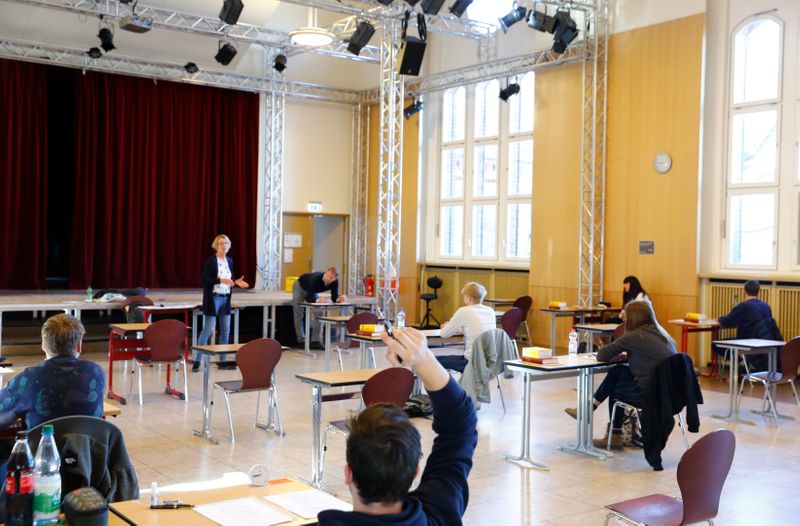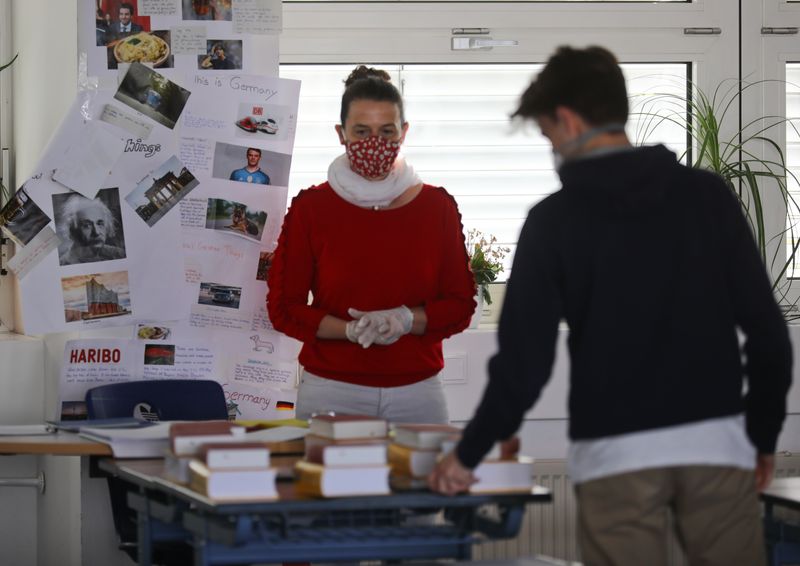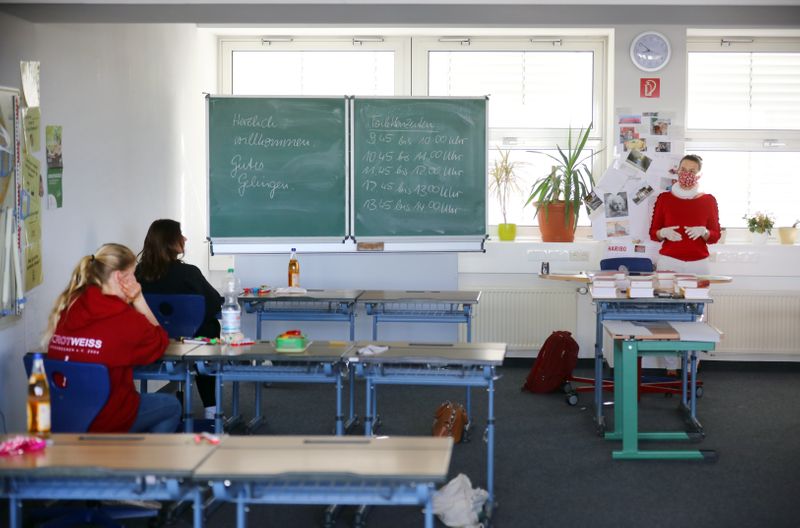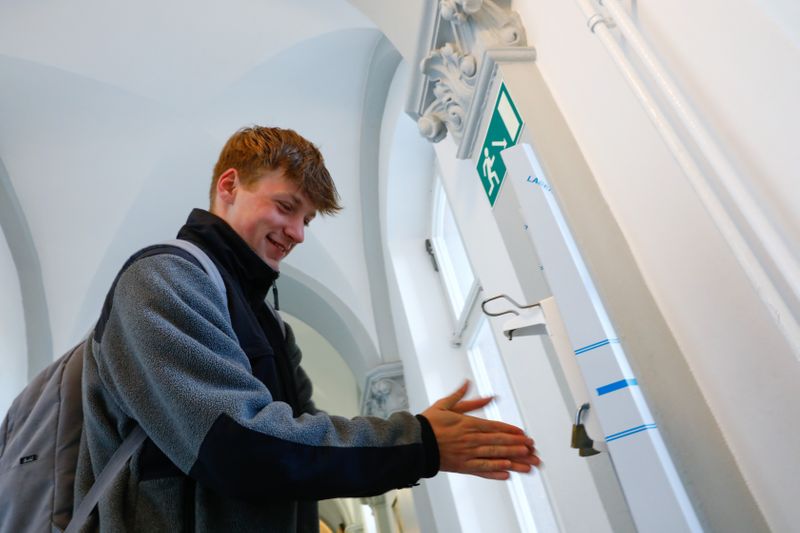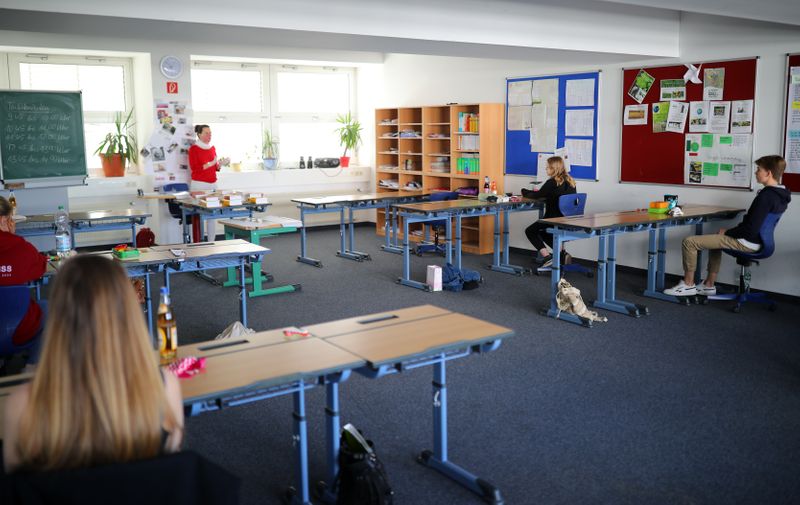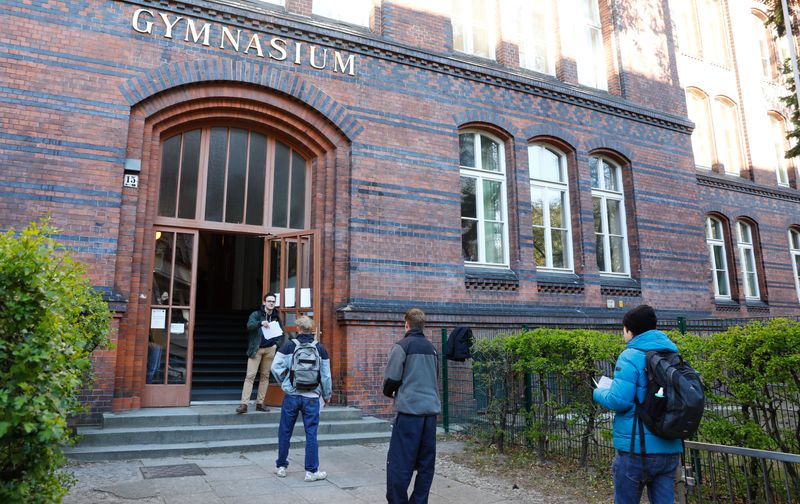BERLIN (Reuters) – Students in Germany went back to class to take their final exams on Monday as schools that had been shut last month to stem the spread of the coronavirus epidemic began to reopen.
The partial re-opening, agreed last week by Chancellor Angela Merkel and regional premiers, started with the oldest students, who will observe strict social distancing as they write their papers.
“I believe the students are ready for their final exams now,” said Antje Luekemann, headteacher of Berlin’s Steglitz High School, where students arrived wearing face masks and disinfecting their hands with sanitiser before sitting down at widely spaced school desks.
“The longer the uncertainty lasts, the more difficult it will be to keep them motivated and that’s why I believe it’s very important that we received the go-ahead for these exams,” Luekemann added.
Pupils across the world have been taking their classes over the internet since governments ordered that schools be closed in order to slow the transmission of the new-style coronavirus that has so far killed over 100,000 people around the world.
German authorities last week concluded that social distancing measures, including shop closures, limits on public gatherings and widespread home working had succeeded in slowing the disease’s spread sufficiently to allow limited reopening.
The details of how schools will reopen are up to Germany’s 16 states to decide. In Berlin, 16-year-olds will follow the 19-year-olds back to class a week later, with other age-groups following in stages over coming months.
Smaller shops also reopened across much of Germany on Monday, though restaurants, cinemas and large stores will remain closed.
Germany has the fifth highest COVID-19 caseload behind the United States, Spain, Italy and France at nearly 142,000 but has kept fatalities down to a relatively low 4,404 thanks to early and extensive testing.
“Of course I’m somewhat worried,” Luekemann said. “The more students there are in the building, the more complicated it gets to stick to the framework conditions. Ultimately we are talking about youths here, who might not always be in a position to evaluate dangers 100%,” she added.
(Reporting by Reuters TV, writing by Thomas Escritt, Editing by Angus MacSwan)

